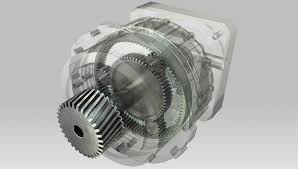Mobile:+86-311-808-126-83
Email:info@ydcastings.com
fan housing
The Importance of Fan Housing in HVAC Systems
In the realm of heating, ventilation, and air conditioning (HVAC) systems, fan housing plays a critical role in ensuring the efficient operation of machinery. Fan housing refers to the enclosure that houses the fan and other related components, providing a protective casing and facilitating optimal airflow. Understanding the significance of fan housing can enhance system performance and prolong the lifespan of HVAC equipment.
Firstly, fan housing is designed to streamline airflow and minimize turbulence. This aerodynamic design reduces energy consumption by allowing fans to operate more efficiently. When air moves through the housing smoothly, it generates less resistance, enabling the fan motor to use less energy while delivering the required airflow. This contributes to overall energy efficiency, making HVAC systems more sustainable and cost-effective.
Additionally, the construction materials of fan housing are paramount
. Common materials include galvanized steel and high-density plastics, which offer durability and resistance to corrosion. These properties are essential in maintaining structural integrity over time, especially in environments with varying temperatures and humidity levels. A robust fan housing not only protects the fan itself but also ensures consistent performance under diverse operational conditions.
fan housing

Furthermore, the configuration of fan housing can significantly impact noise levels. Well-designed enclosures can attenuate sound, reducing operational noise that might otherwise disturb occupants in residential and commercial spaces. Noise reduction is a crucial factor in creating comfortable indoor environments, where excessive sound can lead to dissatisfaction and decreased productivity.
In addition, fan housing can be integrated with filtration systems, enhancing indoor air quality. By housing filters within or near the fan, the system can capture dust, allergens, and other pollutants before they are circulated throughout the space. This is particularly important in hospitals and offices, where clean air is vital for health and productivity.
In conclusion, fan housing is an integral component of HVAC systems, influencing efficiency, durability, noise levels, and air quality. Investing in high-quality fan housing can lead to significant benefits, ranging from lower energy costs to improved comfort and health for building occupants. As HVAC technology continues to evolve, the importance of thoughtful fan housing design cannot be overstated. Ensuring that fan housing is appropriately designed and maintained will ultimately contribute to the system's longevity and effectiveness.
-
Impeller Technology That Powers Precision in Pump SystemsNewsMay.22,2025
-
Valve Durability Begins with Quality Cast Iron ComponentsNewsMay.22,2025
-
Performance Cooling with Advanced Automobile Water Pump SolutionsNewsMay.22,2025
-
How Motor Housing and Oil Pans Shape Engine PerformanceNewsMay.22,2025
-
How Metal Castings Drive Modern Manufacturing EfficiencyNewsMay.22,2025
-
Exploring the Engineering Behind Valve Body CastingsNewsMay.22,2025











